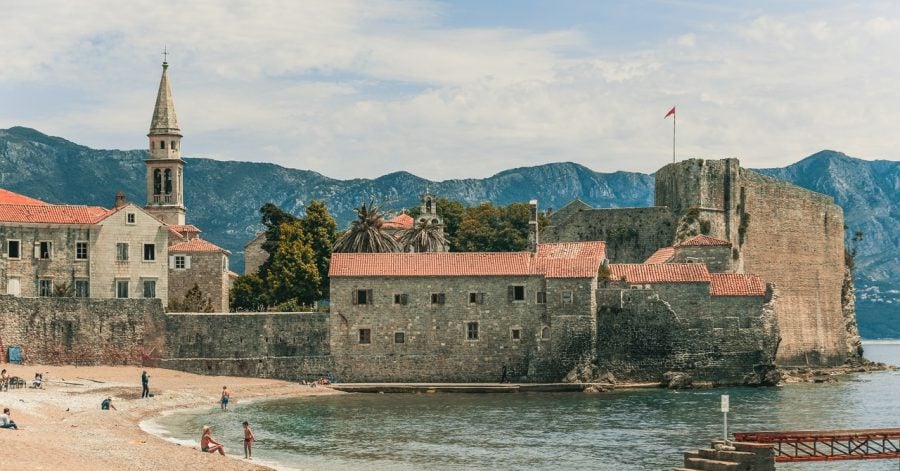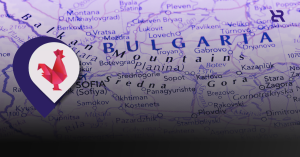Startups and IT aren’t the first things that come to mind when someone thinks of Montenegro. For the past couple of decades, the tiny mountainous Adriatic country, mostly known for its breathtaking coastline and nature, has made its name in the tourism and services industry.
However, the country with a population of 620,000 people also has a young IT industry sector that is picking up, backed by companies which have been in the business for a while. One of them is software company Logate, based and founded in the Montenegrin capital of Podgorica in 2006.
The company’s founders and entrepreneurs Ivica Tatar, Predrag Biskupović and Dragan Mihaljević worked for 10 years in Crnogorski Telekom, the biggest telecommunications company in the country, bringing decades long experience in software development, system engineering, data warehousing, project management, and network engineering.
Bringing open source to telcos and fintech
Sixteen years ago, the three founders of Logate decided to start a company that would service telecoms and other enterprise companies with specialized products aimed at digitally transforming their businesses.
Since its beginning, Logate has grown to 70 engineers, developers, designers, managers, that serve over 250 clients in eight European countries, offering products for the telecommunications and finance industries.
The company is also advocating for the use of open source, which can be seen through its products, namely its OpenProvider – a converged AAA (Authentication, Authorization, and Accounting) solution for all types of access technologies (DSL/FTTx, 3G/4G/5G, WiFi).
“On the telecommunications side, the Logate AAA platform is one of the core components of a telco network, allowing operators to manage and monetize their networks. In the financial industry, Logate’s fintech products cover all digital operations and client interactions of banks around their core banking systems,” Maša Miladinović, technical marketing lead at Logate, tells The Recursive.
While the Montenegrin IT industry today is mainly focused around providing IT services, Logate is one of the few Montenegrin IT companies that works on its own software products, engaging fully in product development, marketing and sales.
“Logate is considered as one of the leaders on the Montenegrin IT scene, paving the way to a wider international presence in the domain of enterprise software development,” Miladinović added.
Promoting the IT industry and its vast opportunities
However, Montenegro is no exception when it comes to the ever growing need for IT experts in the job market, the company explains.
The fact that the institutions of higher education in the country do not produce enough graduates to cover the needs of the market, was what prompted the company to establish its Logate Institute for Information Technology, and offer courses that prepare students to directly enter the job market.
“Within 5 years of existence, the Logate Institute has managed to mobilize hundreds of people to pursue education in the domain of IT, which ultimately prepared them for the job market. The company itself regularly employs graduates from the Institute, whilst others easily find employment in other companies in the country and internationally,” Miladinović tells The Recursive.
Logate’s own experience has shown that with heavy investment in promotion of the industry and job opportunities in the last couple of years, there has been a growing interest in IT careers and more people of all ages have decided to pursue careers in tech.
“Additionally, in the last couple of years there seems to have been an increase in awareness within the government and public institutions about the importance of developing the IT scene and startups ecosystem in the country. This led to more initiatives being started to support the startup community and encourage IT education from a young age,” Miladinović points out.
Growing support for the startup ecosystem
According to Podgorica-based business and science journalist Maria Bolevich, there is also growing support for the Montenegrin startup community.
Last year the company Domain.ME and the United Nations Development Program launched the “Spark.me startup adventure” project, which enabled young people to acquire the necessary skills from areas of entrepreneurship and startup business, and prizes of 5,000 euros each for the best ideas, she explains.
“This year Podgorica announced a competition for support for StartUp ICT businesses, and the budget is EUR 40,000 for all those who want to start or develop their business in the capital city. These are important forms of support, and I am especially glad that it is an opportunity to use the potential, effort and knowledge of all those involved,” Bolevich tells The Recursive.
Montenegrin startups are also getting different support mechanisms, digital transformation expert Snežana Nikčević points out.
“In the last few years there has been considerable development, both when it comes to the number of start-up solutions, but also when it comes to different support mechanisms. So now in our country, many of these mechanisms imply continuous support for those who want to launch a startup from the idea, through development to the closing of the financial structure for the very realization of the envisioned solution,” Nikčević tells The Recursive.
Additionally the Montenegrin ICT sector has recently gathered around an umbrella organization, ICT Cortex, which aims to strengthen the local IT ecosystem and make it more competitive internationally.
“Most of these companies are a part of the ICT cluster Cortex, so their activities are more focused. There are also possibilities of presenting your solutions to foreign investors, which is currently enabled by startup hub Digital Den,” Nikčević says. He adds that what is also promising regarding the further development of the startup ecosystem in Montenegro is the legislative framework, which has a vital role.
“It is reflected, first of all, in the Law on Innovation Activities, which, among other things, facilitates the business of startups and employment on innovative projects, reinvestment in innovative projects, encouraging infrastructure construction for innovative activities, and so on,” she concludes.
Want to stay up to date with the content we produce at The Recursive?
Follow us on socials (LinkedIn | Instagram | Facebook | Twitter) + join the newsletter for a weekly dose of innovation leadership resources.








